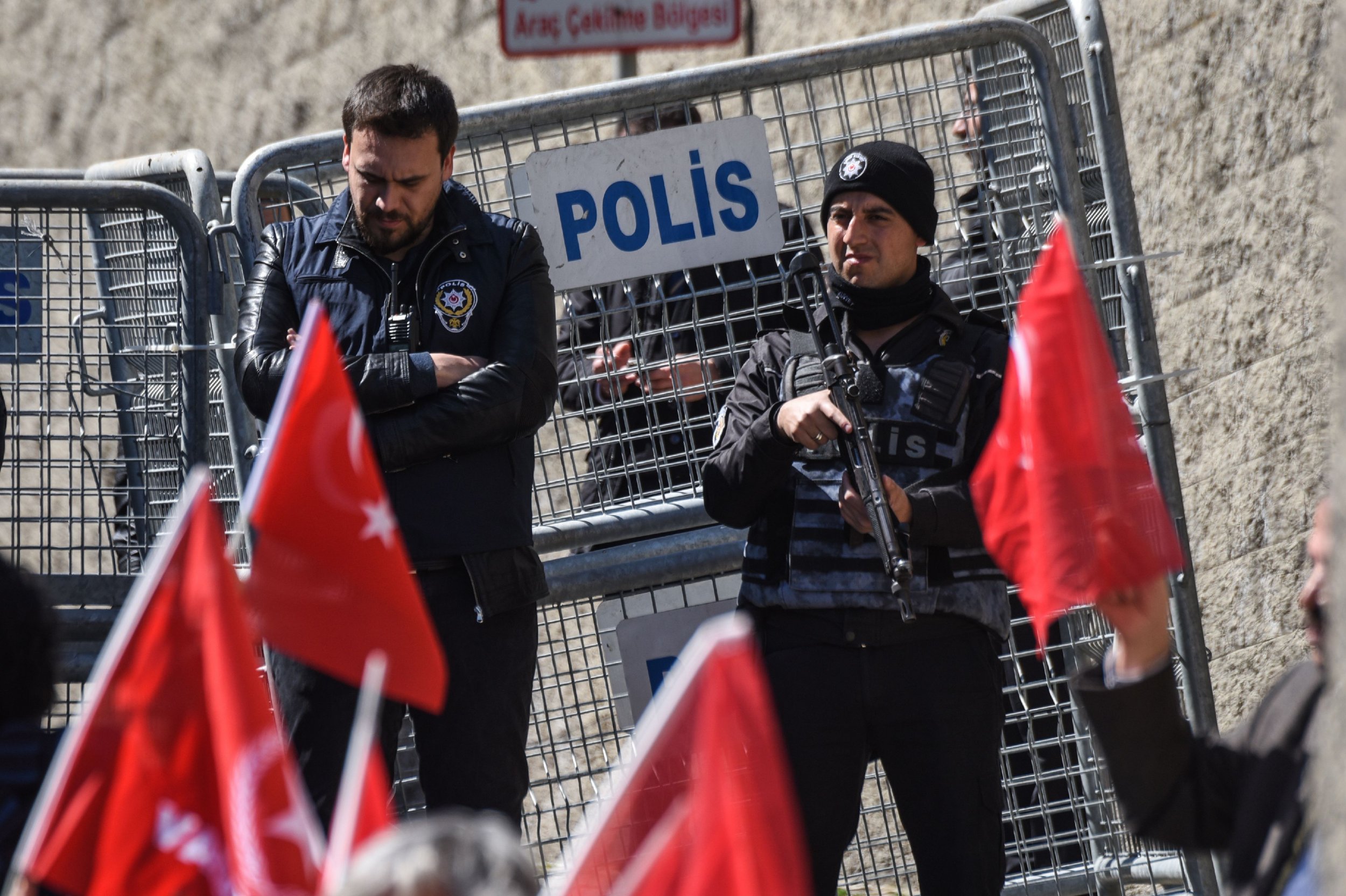
The U.S. and Turkey, NATO allies, have announced travel restrictions on each other in a tit-for-tat row that represents another step in the deterioration of ties between Ankara, Washington and other Western powers.
On Sunday, the U.S. and Turkey said they had suspended processing non-immigrant visas to citizens of the other country. An official at the U.S. embassy in Istanbul confirmed the suspension to Newsweek. The decision, if long-lasting, will affect thousands of Americans.
But why has Turkey suspended visas for Americans? The answer in short: It's complicated.
The U.S. Embassy in Ankara said that "recent moves have forced the United States government to reassess the commitment of the government of Turkey to the security of U.S. mission facilities and personnel." It was referring to Turkey's arrest of a Turkish employee of the U.S. consulate in Istanbul last week. The government accused the employee of ties to Fethullah Gulen, the much-maligned Turkish cleric who lives in U.S. exile and is accused of plotting a failed military coup in Turkey in July 2016. He resides in Pennsylvania but Turkish attempts to have him extradited have failed.
The U.S. had said the arrest and allegations were "wholly without merit." It said that it was "deeply disturbed" by Turkey's decision to arrest a member of its diplomatic staff.
Turkey's embassy in Washington then retaliated with a similar move, one that blocks Americans entering Turkish territory from the U.S. or elsewhere, unless they can obtain a visa from another diplomatic mission. It said the suspension would apply to "apply to visas in passports as well as e-Visas and visas acquired at the border. "
When Newsweek attempted to apply for an e-visa through the Turkish system, it came up with an error message entitled "Sorry," that read: "Unfortunately, nationals of the country that you selected are not eligible for e-Visa. Kindly visit the nearest Turkish mission to apply for a visa application."
Ankara summoned a U.S. diplomat on Monday to protest the suspension, saying that the move was creating "unnecessary tensions" between the allies. The protests from Ankara came as the Turkish lira dropped more than six percent in value after the news. It remained two percent weaker at the time of writing.
While the number of U.S. tourists traveling to Turkey has steadily dropped in the past three years—likely because of the rise in attacks by the Islamic State militant group (ISIS) in Istanbul and Ankara—tens of thousands still make the journey. In 2015, 31,038 Americans traveled to Turkey and, a year later, just 22,621 made the journey, according to the Turkish Ministry of Culture and Tourism.
Turkey-U.S. relations have grown increasingly fraught over the battle to defeat ISIS and Washington's support for Syrian Kurds leading the fight against the radical Islamist group in eastern Syria, where a Kurdish-Arab coalition is close to wresting the city of Raqqa from the jihadist cult.
Ankara considers the top Syrian-Kurdish militia, known as the People's Protection Units, or YPG, to be an affiliate of the Kurdistan Workers' Party, or PKK, a group designated as an extremist organization by Turkey, the European Union and the U.S. The militant group has waged a decades-long insurgency against the Turkish state, in a conflict that has left more than 40,000 people dead.
For the visas to be reinstated on both sides, Washington will likely want Ankara to make a peace offering in regard to the consulate worker, and give assurances about staff at U.S. diplomatic sites. Whether that will come sooner rather than later remains to be seen.
Uncommon Knowledge
Newsweek is committed to challenging conventional wisdom and finding connections in the search for common ground.
Newsweek is committed to challenging conventional wisdom and finding connections in the search for common ground.
About the writer
Jack is International Security and Terrorism Correspondent for Newsweek.
Email: j.moore@newsweek.com
Encrypted email: jfxm@protonmail.com
Available on Whatsapp, Signal, Wickr, Telegram, Viber.
Twitter: @JFXM
Instagram: Read more
To read how Newsweek uses AI as a newsroom tool, Click here.








